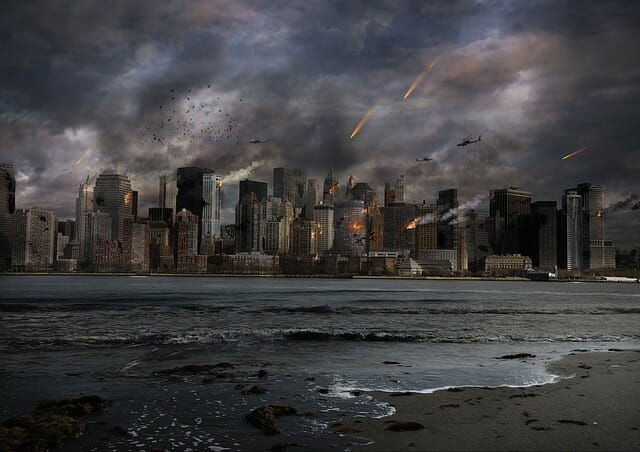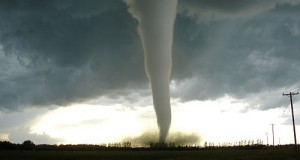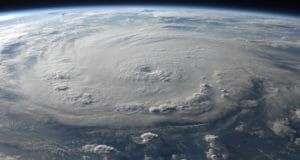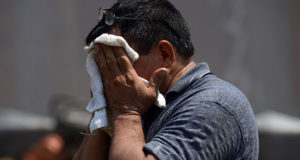You’ve probably seen news reports about war-torn countries, countries where rival gangs (usually referred to as “warlords”) battle for control, and countries which have descended into anarchy. The total lack of organized society, lack of basic services, difficulty in finding the most basic necessities of life, and overall danger to the civilian population make these images difficult ones to understand and accept. We wonder if such a thing could ever happen to us … here in the USA.
The simple answer is that we just don’t know. Our strong central government and multi-layered law enforcement community makes it seem like such a thing would be impossible. But the reality is that there are major disaster scenarios which could bring about such a total collapse of society. If things get so bad that police and other essential services aren’t being paid, how long will they stay on the job?
A total loss of the electrical grid could bring on such a situation. How could we fairly expect police to stay on the job, when there is no way of paying them? What if they had to go home, so that they could raise food to feed their own families? Could we begrudge them that?
Granted, this is a worst-case scenario, but much of prepping is centered around worst-case scenarios. If you are prepared for the worst, then you are much more likely to survive something that is not as bad. While a total breakdown of society may not ever come, we have seen society break down in the wake of many a major disaster. So the possibility of a collapse is always possible, even if only for a limited period of time.
Get Free Backup Electricity — And Never Be Without Power!
While these sorts of scenarios merely add to the reasons for being able to defend ourselves, the very act of self-defense means we’ve already lost something. We’ve lost our anonymity. People will know that we are there. That could invite other attacks. Better that we disappear into the woodwork and not attract any attention to ourselves.
Part of this is avoiding situations and locations where we would be putting ourselves at risk — places where we are likely to be forced to defend ourselves. In this sense, the best defense is never having to defend ourselves at all. So here are some of the top places to avoid, in a post-disaster world:
1. FEMA Camps
Personally, I don’t like the idea of putting myself in the hands of the government for anything I don’t absolutely have to. While I am sure that the vast majority of the population will see a FEMA camp as a place to get three hot meals and a bed, I’m also sure that as a prepper, I won’t need their help.
But the big problem is the danger involved in being in a FEMA camp — not just from the government, but from the other people inside the camp. This was made manifestly clear in New Orleans, when Hurricane Katrina forced millions of people out of their homes. Many of those that went to the Superdome, which had been converted to a temporary FEMA camp, were robbed, beaten and raped.
Making matters worse, FEMA won’t allow personal firearms in their refugee or relocation camps. So that means that the price of entry is giving up your right to self-defense and your Second Amendment right. Unless I was starving to death (and maybe not even then), that’s too high a price to pay.
2. Supermarkets
Have you seen the fights that break out in stores on Black Friday? That’s going to be nothing in comparison to what’s going to happen in our supermarkets. Even going with the idea of buying food with cash will be a waste of time, as most of the computerized cash registers won’t be working anyway. It won’t take long for order to break down and people to start stealing.
The first thing that’s going to be looted in the wake of any disaster is supermarkets, including Walmart and any other big box stores that carry food and bottled water. Since so few people have a stockpile of food and water in their homes, they’re going to be doing whatever they can to get their hands on whatever they can. Supermarkets will turn into massive brawls, as people fight for food.
3. Pharmacies & Liquor Stores
The other two types of stores which will quickly be looted are pharmacies and liquor stores. Some people put their vices above the basic necessities for survival, defying Mazlow’s Hierarchy of Needs. To these people, the ability to escape from their situation, either by getting drunk or getting high, surpasses everything else.
Much will be needlessly destroyed in the rush to get what these people want, especially in the pharmacies. Valuable medicines, which will be needed for keeping people alive, will end up crushed underfoot, as criminals steal those drugs that they can use to escape reality for a moment.
Keep in mind that these are people who live on the fuzzy edge of crime anyway. Stepping across the line into committing acts of violence on others isn’t that big a step for them. If they think you have things that they need, going into these stores could be like walking in with a nice big bullseye painted on your back.
4. Major Highways and Intersections
Whether you end up forced to bug out or you are just trying to get from one place to another, avoid taking the major highways and crossing major intersections. Everyone knows these routes, and will be using them to escape themselves.
In 2015, when Hurricane Rita was bearing down on Houston, city officials called for a general evacuation. Over 5 million people took to the highways, trying to get out of town. But even though there are many highways leading out of Houston, there weren’t enough to carry all those cars. The traffic jams were over 100 miles long. People died from sitting in their cars, in that heat.
Any travel needs to be by back-ways, whether across the neighborhood, across town or to leave the city. About the only exception to this would be if you managed to get out of town before the exodus began. Putting your bug-out plan into effect early might just be your best protection yet.
5. Hardware and Sporting Goods Stores
While it won’t happen immediately, hardware and sporting goods stores will be looted, as well, once the supermarkets and liquor stores have been cleaned out. As people come to grips with the situation and realize how poorly prepared they are, their minds will turn from the need for food, to the need for camping gear, guns, ammunition, fishing equipment and anything else that will help them survive.
Just as with the supermarkets, what will probably start as an attempt to make emergency purchases, will quickly degenerate into theft and violence. People will react to their desperation, breaking down their normal reluctance to commit crimes. Once that starts, it will spread like wildfire, infecting normal, law-abiding citizens.
6. Gas Stations
Hurricane Harvey narrowly missed my hometown, as it veered northwards and hit Houston instead. We saw this happening, and everyone breathed a sigh of relief. But that sigh was cut short as soon as the news mentioned that refineries around Houston were shutting down to weather out the storm.
This led to a panic about the potential of gas shortages. Lines two and three blocks long formed at every gas station in town, cleaning them out of all grades of gasoline, as people sought to fill their car’s tanks. The average wait time to get to the pumps was over two hours.
Don’t expect to be able to buy gasoline for your car or truck, no matter what. If your survival plan includes bugging out, you need to have the necessary gasoline on hand, rather than expecting to be able to fill your tanks before leaving town. For that matter, you need to have more gasoline than you’ll need, so that you can be sure to have enough to arrive at your survival retreat. Assume it will take twice what it would normally take.
7. Public Parks and Squares
It is natural to gather in public spaces when major events are happening. Parks and squares become a place for finding out the news — what’s happening and what people are doing about it. They also become the local market, with people bartering what they have, for what they need.
While these public places will eventually settle into some level of organization, turning into open air markets, that will take some time. Until some order is established, they will be dangerous places to be. Those who prey on others will recognize them as places with a high number of potential targets, people who have things that they can steal.
8. Government Offices
We live in a society which has morphed from being people of action, to defining “action” as “complaining.” There are many more “activists” in modern society, than there are people of action. You can be sure that these people will be out in force, making their complaints known loudly to whatever government is still in existence.
These are highly explosive situations, which can quickly turn to mob violence. We’ve seen that over and over in Ferguson, Baltimore and many other cities. Professional agitators show up at grass-roots demonstrations, with the goal of turning the demonstration violent. What would make anyone think that such a thing wouldn’t happen at a protest in the wake of a disaster?
Remember, the average American is no longer self-sufficient. More and more, we’re seeing our population wanting the government to take care of them from cradle to grave. They will see any disaster as a failure of the government to meet that commitment and demand that the government fix whatever they perceive is wrong.
Which places would you add to our list? Share your ideas in the section below:
 Off The Grid News Better Ideas For Off The Grid Living
Off The Grid News Better Ideas For Off The Grid Living




